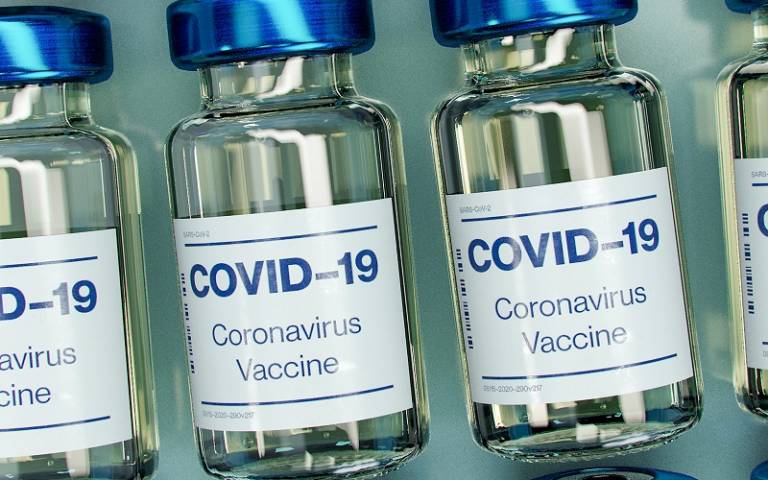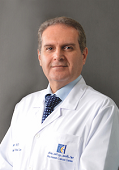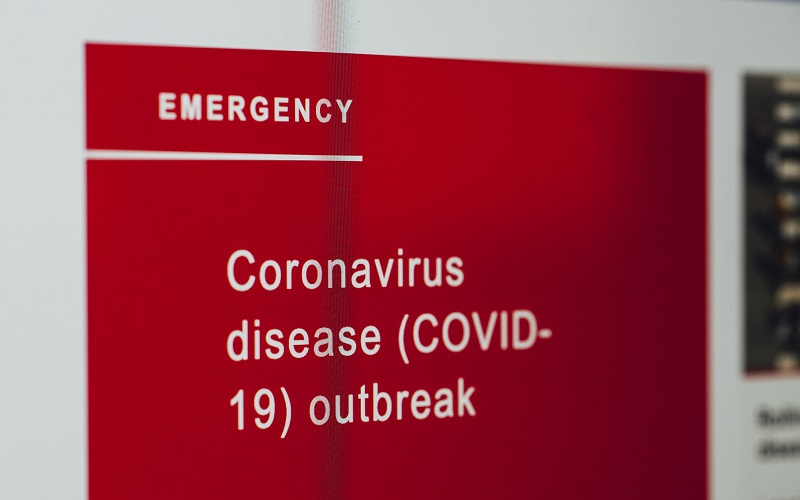
Many developing countries are at risk of being left behind when it comes to purchasing and effectively distributing COVID-19 vaccines. This panel discussion explores possible national and global level responses.
This event is free.
Event Information
Open to
- All
Availability
- Yes
Cost
- Free
Organiser
-
Julia Kreienkamp
Humanity’s fight against the coronavirus pandemic has reached a new level with the impending entry into the market of at least three effective vaccines. In a rapidly evolving scientific and medical push-back against the pandemic, as of 11 December 2020, regulatory approval had been granted in the UK, Bahrain and Canada for one of the vaccines (BNT162b2 by pharmaceutical giant Pfizer and German biotech company BioNTech), while the US FDA had recommended the vaccine for approval. Phase 3 data on safety and efficacy shows that two other vaccine candidates (ChAdOx1 nCoV-19 by pharma company AstraZeneca and University of Oxford & mRNA-1273 by US biotech company Moderna in collaboration with the National Institute for Allergies and Infectious Diseases) could be ready for approval soon too. China and Russia have also announced approval of effective vaccines from their research and trials.
As all this is happening, extensive discussions have already started on distribution and administration logistics for the vaccines. The logistical challenges are huge even for advanced countries with strong health and ancillary systems, and the anticipation is that it will indeed be herculean for low- and middle-income countries (LMICs). There is still of course the big question of how much of the vaccines will be available to go round, and where developing countries figure in the queue of the countries that have made advance purchases of the vaccines. Within and beyond that question, there are deeper questions on how the distribution and administration will be done, thinking about the potentially large numbers that need to be vaccinated and the requirement for delicate cold chains in the delivery pathways.
How will low- and middle-income countries respond? Is there an opportunity for leapfrogging into readiness, technologically, infrastructurally and in governance mechanisms? This webinar will bring together academics, supply chain experts, the pharma industry, regulators, patient groups and others to explore the facts around these questions and more which are pertinent in global and national efforts to suppress the virus.
About the Speakers
Feras I, Hawari, MD, FCCP, TTS
President at
Jordan Center for Disease Control
Dr. Hawari is the Chief of Pulmonary and Critical Care and the Chief Cancer Control Officer at King Hussein Cancer Center. In addition, he is a Professor of Medicine at the University of Jordan. Recently, Dr. Hawari was assigned the task of establishing and leading Jordan's National Center for Disease Control. He played a pivotal role at the national level in designing and implementing the preparedness and the response plans. Furthermore, he earned the trust of the public and the media and was one of the reliable sources for delivering scientific messages and updates on the COVID-19 status in Jordan and elsewhere. His early warnings since day one of the pandemic regarding the need to reform Critical Care practice in Jordan was one the driving factors for recognizing Critical Care as a stand-alone specialty and establishing official fellowship training programs.
Lenias Hwenda, PhD
Founder and CEO at
Medicines for Africa
Lenias is a recognised international health affairs expert specializing on the global politics of access to quality medical products by underserved communities. Her work as a health entrepreneur focuses on supply chain management to improve access to treatment in African countries. She has worked with African governments in the World Health Organization for the past ten years where she has contributed to several international negotiations including on global pandemic influenza preparedness. She recently co-chaired the historic World Health Organization intergovernmental global negotiations on the transparency of markets for medicines, vaccines and other health products during the World Health Assembly in 2019. Early in her career, Lenias worked as a post-doctoral immunologist at the University of Oxford, UK, and the Rockefeller University, USA, specializing in the development of novel vaccines and anti-infectives.
Skhumbuzo Ngozwana, MD, MBA
CEO at
Kiara Health, South Africa
Dr Ngozwana is an international expert on the African pharmaceutical industry and has worked with both the private sector and global public health organizations. His company, Kiara Health, is a South African based Africa-focused healthcare company. Skhumbuzo consulted for the World Health Organization (WHO), United Nations Industrial Development Organization (UNIDO) and the United States Pharmacopeia Convention (USP). He co-authored the Pharmaceutical Manufacturing Plan for Africa. The plan was the output of the extensive research and analytical work he conducted on the African pharmaceutical industry. He co-authored the Ethiopian Pharmaceutical Sector Strategy and Action Plan and the pharmaceutical sector strategies of several countries. He consulted for USP on their Africa strategy and authored a Thought Leadership Paper titled, The Next Frontiers for the Public Health Medicines Market: Rethinking Priorities for Improved Access to Quality-Assured Medicines for Universal Access.
Julius Mugwagwa, PhD (Panel Convenor)
Associate Professor in Innovation and Development at
University College London (UCL)
Julius is a multi-disciplinary researcher and innovation systems scholar, with a background in biological sciences, biotechnology and technology (biotech) regulation. He is currently an Associate Professor in Innovation and Development at University College London, Faculty of Engineering Sciences, Department of Science, Technology, Engineering and Public Policy (UCL STEaPP). He also serves as Thematic Director, Global Health, for UCL’s Global Governance Institute. Among his current research interests is the funding and governance of local production of medicines in Africa. He can be reached at: j.mugwagwa@ucl.ac.uk.





 Close
Close


 Watch this panel discussion with UCL experts on the implications of COVID-19 for global health governance.
Watch this panel discussion with UCL experts on the implications of COVID-19 for global health governance.